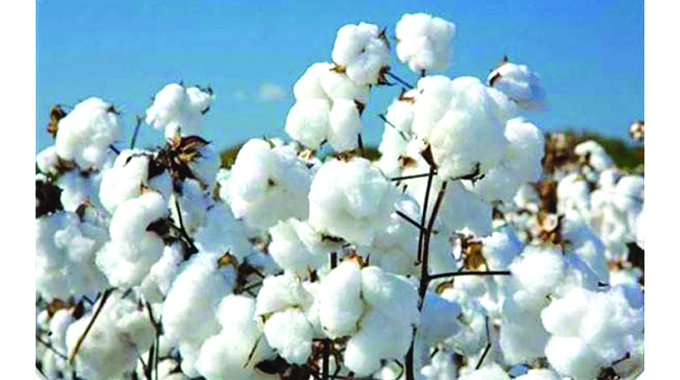Cotton scheme improves farmers livelihoods

Elita Chikwati
Senior Agriculture Reporter
The Presidential Cotton Inputs Scheme has transformed lives of many smallholder farmers in communal areas especially youths and women who were struggling to access funding.
Under the facility, farmers are given seed, fertilisers and chemicals for free,.
In some areas farmers are also assisted with tillage services.
The Presidential Inputs Scheme was extended to cotton after farmers had abandoned the crop citing viability challenges and the very high prices many merchants were charging for inputs, coupled with the very slow payment systems.
Beneficiaries of the Presidential Inputs Scheme now boast of acquiring tractors, grinding mills, irrigation equipment and household furniture.
A number of the smallholder farmers can now send their children to decent schools while others have developed their homesteads and acquired livestock from the cotton proceeds.
However, the farmers said the facility should continue until they get to a stage where they can sustain themselves and be able to fund themselves without having to be contracted.
Mrs Kudzai Mhlauri of Chinhoyi in Mashonaland West said she was grateful to the scheme as this has uplifted her life.
“Last season I got 60 bales and from the proceeds I bought kitchen furniture and utensils, sent children to school and bought food. This year we received enough inputs and got 96 bales. We received our payments in foreign currency and we are still waiting for the payment in local currency,” she said.
Mr Talent Majoni (32) started growing cotton when he was still a teenager, but started realising meaningful profits after benefiting from the Presidential Inputs Scheme.
“I earn my entire living from farming. The credit inputs are the capital to start the business. Most young people are complaining of unemployment and growing cotton is another way of earning decent living,” he said.
“I have established a decent homestead. I bought 20 beasts and a motorbike from cotton proceeds. Some of my colleagues do not have as much as I have. I used proceeds from cotton to build my homestead. I have bought 20 beasts from cotton proceeds.
“Some youths are struggling as they are not employed and do not have capital to start businesses. I encourage them to grow cotton and earn a decent living,” he said.
Chief Muzarabani in Mashonaland Central, who has been growing cotton for many years said he was encouraging people from his area to grow cotton and provide themselves.
“We grow cotton under the Presidential Inputs Scheme being spearheaded by Cottco. Our President is supporting the programme. Since the time we started getting inputs from Cottco our lives have improved.
“Cotton is our major cash crop. Some people were no longer interested in growing cotton because of the high costs of production. Some farmers sell inputs but we apprehend them. This year we had good rains and we got a good crop. I am a chief but I also compete with other farmers to produce cotton.
“We hope Government will continue supporting farmers under the programme. Some bought tractors, grinding mills and household furniture,” he said.
Some farmers said they had received their money from this season’s proceeds, but were still to get their adjustments and urged the Government to pay them in time so they remain viable. Cottco has since engaged commercial farmers under the programme as part of increasing production.
Cottco chief executive Mr Pious Manamike said they had so far received 108 000 tonnes of cotton from farmers.
“The major challenge is low yields and climate change. Climate change affect rain distribution and this affects crop quality and yields.
The Presidential Inputs scheme has benefited smallholder farmers and we also employ people from the villages,” he said.
Cotton is important because of its contributions to the textile industry, edible oil and stockfeeds manufacturing.










Comments